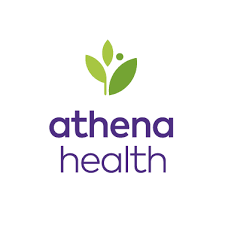
Editor's Note Physicians are feeling more optimistic about their profession and are beginning to see tangible benefits from AI in reducing administrative tasks, according to the latest Physician Sentiment Survey (PSS) from athenahealth. Physicians’ day-to-day outlook has improved in recent years despite ongoing concerns about US healthcare, the organization reported…

Editor's Note A new genetic testing tool could allow surgeons to accurately identify cancer cells in real time during brain surgery, potentially improving surgical outcomes and reducing cancer recurrence, NYU Langone Health System announced. According to a February 25 press release, the Ultra-Rapid droplet digital PCR (UR-ddPCR) technique identifies cancer…

Editor's Note Researchers at Karolinska Institute in Sweden have developed artificial intelligence (AI) models that outperform human experts in detecting ovarian cancer using ultrasound images. As reported January 7 in DotMed, the AI was trained on over 17,000 images from 3,652 patients across 20 hospitals in eight countries, achieving an…

Editor's Note A significant increase in the use of neoadjuvant systemic cancer therapies is among the most notable findings from the first annual cancer report from The American College of Surgeons (ACS) National Cancer Database (NCDB). The report also emphasizes the value of early detection, innovative therapies, and robust datasets…

Editor's Note Female patients undergoing high-risk surgeries are significantly more likely to die from postoperative complications despite experiencing complications at similar rates, according to findings published October 16 in JAMA. Observed in a cohort of 863,305 Medicare beneficiaries, this disparity suggests that clinicians may be less effective at recognizing and…

Editor's Note A recent randomized crossover trial conducted at Johns Hopkins University reveals that improper arm positioning during blood pressure measurements can lead to significant overestimation, potentially contributing to over-diagnosis of hypertension. The findings appeared in Jama Network October 7. The study, which included 133 participants, compared readings in three…

Editor's Note An American Hospital Association (AHA) analysis of data from Vizient reveals that hospital performance levels in the first quarter of this year was on par with performance prior to the COVID-19 pandemic, despite patients exhibiting more significant healthcare needs. Released this month, the report analyzes data from 2019…

Editor's Note In partnership with the World Health Organization (WHO), The Joint Commission and The Joint Commission and Joint Commission International (JCI) invite organizations, health professionals, patients, and their advocates to recognize World Patient Safety Day Tuesday, September 17. This year’s theme is “improving diagnosis for patient safety.” This theme…
Editor's Note Human trials may begin soon on patients in the UK using tiny, folding brain implants that could improve epilepsy surgery, according to an article published August 12 in The Telegraph. Developed by scientists at Oxford and Cambridge, who published their research in the journal Nature Communications, the implants…

Editor's Note Early-onset colorectal cancer (EO-CRC), diagnosed before age 50, is increasing in incidence worldwide. Despite existing postoperative colonoscopy surveillance strategies, the optimal intervals for EO-CRC patients are unclear due to limited long-term data. This study, titled “Early-onset Colorectal Cancer Patients Do Not Require Shorter Intervals for Post-surgical Surveillance Colonoscopy”…